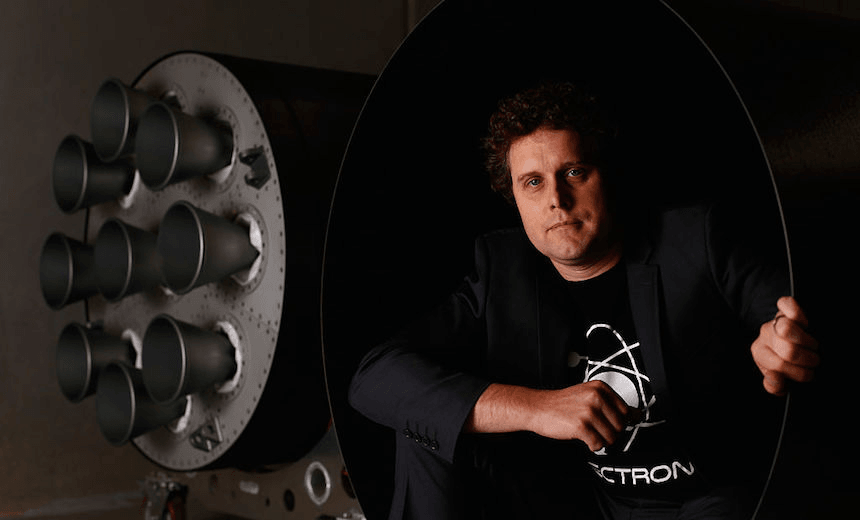In response to The Spinoff’s coverage of Rocket Lab’s US military connections, the head of New Zealand’s space agency, Peter Crabtree, wants to assure New Zealanders it is in full control of what goes into space.
Becoming a space-faring nation is a momentous achievement for New Zealand. The opportunities the space sector presents for our economy and for future generations of scientists and technologists are immense. The sky is literally no limit.
Space represents precisely the kind of industry New Zealand should be developing. It is highly productive, innovation-led, offers highly skilled jobs, and has significant supply chains and consumer markets that connect into a global economy.
We’ve moved quickly to seize this opportunity. It is understandable that New Zealanders have questions about the implications of such a new sector, especially one at the absolute cutting edge of innovation and technology. Who are we partnering with, and what do they intend to do? How do we ensure that our national values and sovereignty are upheld and protected? What will the space technologies developed look like and be used for?
The Ministry of Business, Innovation and Employment’s New Zealand Space Agency and the wider government have considered these important questions carefully throughout the development of our regulatory regime. We want and need a space industry that meets not just the expectations of Kiwis but also the global community, and we have put in place a regulatory framework that demands we do this. The Outer Space and High-altitude Activities Act 2017 meets an incredibly high standard in regulation.
Right now the most high profile space activity we see in New Zealand is the launching of payloads (so far, small satellites) from Rocket Lab’s launch facility on the Mahia Peninsula. This is the first facility of its kind in the world. Globally, commercial launches are a relatively new activity and Rocket Lab with its rapid launch capability is a world leader in its field.
Its customers range from the purely commercial to scientists and researchers (from high schools and universities) to government agencies. To date, the bulk of payload applications to launch from New Zealand have come from operators in the United States.
This is not unexpected given the long and productive history the US has in space activity. Some of Rocket Lab’s clients so far include NASA, space data and analytics firm Spire Global, the California Polytechnic State University, and the Defence Advanced Research Projects Agency (DARPA). These payloads have a range of functions including gathering earth observation data to monitor weather and track shipping vessels, demonstrating new technology in space situational awareness, and improving radio communications in small spacecraft.
But before any of these “CubeSats” as they are known catch a lift into orbit they must meet the series of tests set out in our legislation. These tests are designed to ensure public safety, minimise the potential to create orbital debris, and ensure activity is consistent with New Zealand’s international obligations, national security, and wider national interest.
It’s a rigorous process involving assessment not just of the technology, but of its operators and their intent. New Zealand is wholly committed to the safe, secure and peaceful use of space, and this aim is not only reflected in all aspects of our national legislation and regulatory regime, but also in the international treaties and agreements we are signatories to.
We have a system that allows us to assess each application on its merits. Have we received and approved payload applications from defence agencies? Yes we have, because to date these payloads are consistent with New Zealand’s national interest.
It pays to remember that technology developed by the military can make a major difference to the lives of millions of people – GPS, for example, was designed, built and funded by the US Air Force as an encrypted military navigation system. Now, it supports systems and services we use every day.
The nature of technology deployed in space is inherently multi-use, meaning it could be used for commercial, civil, or military purposes. In many cases we are unable to disclose detailed information publicly because of commercial sensitivities, the information has been entrusted to us in confidence, or because of matters related to our national security assessment.
This does not mean that applicants are not required to declare the mission and purpose of their payloads. Full disclosure is required from all applicants and this is non-negotiable. We are absolutely confident that our applicants are open and honest about the information they provide to us, and in our ability to verify that information.
Agencies from across Government are consulted on all applications to ensure they are understood and properly vetted. This process can include independent assessments made by specialist agencies to ensure that all the relevant expertise and competencies are applied when considering an application.
If we are not satisfied we understand the mission and purpose of any given payload, we will always request more information until we do understand and can reach an informed permitting decision.
Let me be very clear, no applicant would ever be approved to launch a payload that was not consistent with our international obligations, national security, and wider national interest. No one, from a commercial outfit to a government agency, could ever gain permission to launch nuclear, chemical or biological weapons from New Zealand.
I’m incredibly excited to watch New Zealand’s space sector flourish and want to assure all New Zealanders that we have established an informed and robust inter-agency process for deciding what can be launched from New Zealand and what cannot.
Peter Crabtree is the General Manager of Science, Innovation and International at MBIE, and the head of the New Zealand Space Agency.
